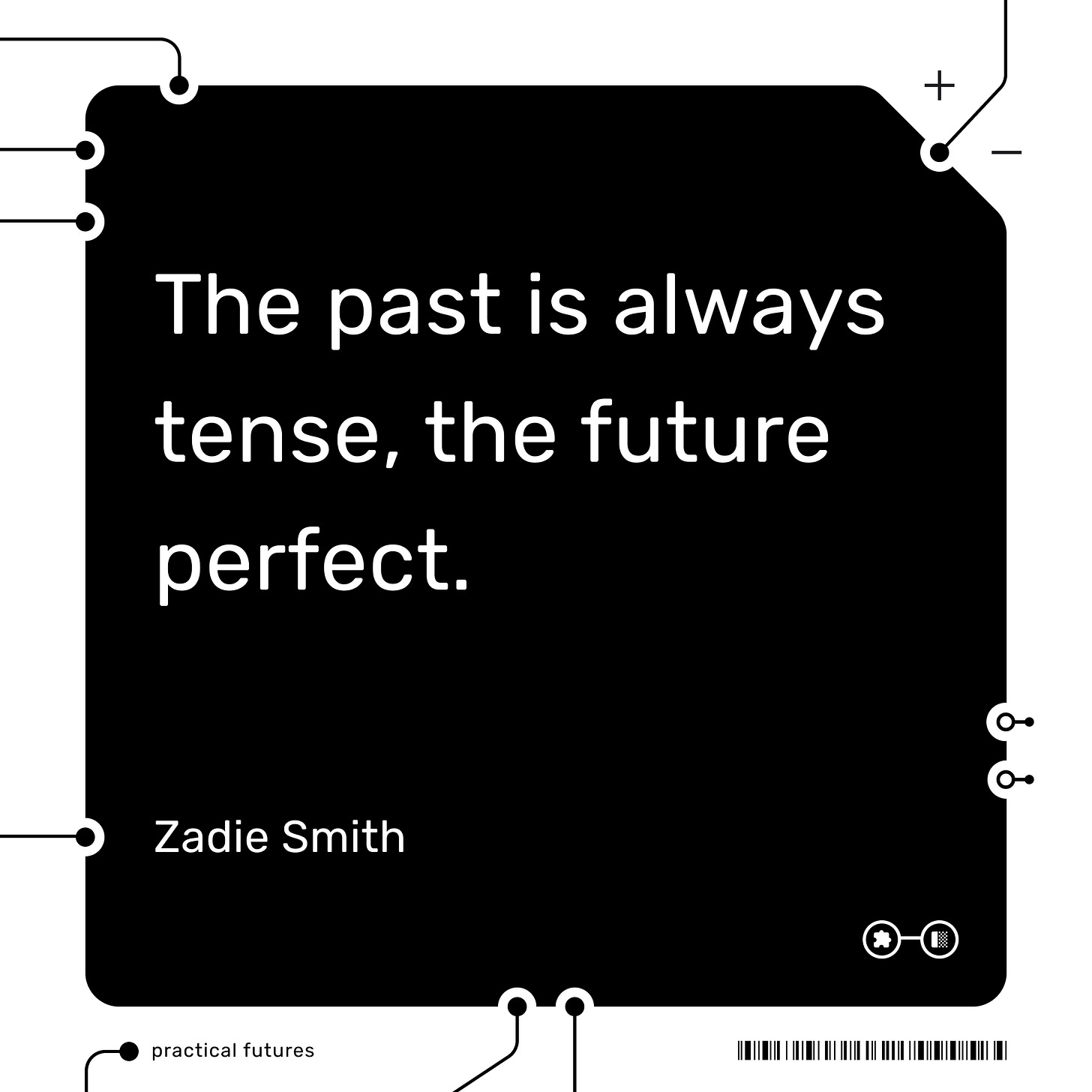He taps the plaster on his right hand, gathering the courage to confess.
- I must admit I expected the cast to be 3D-printed or something.
The doctor smiles softly while tapping data into her console.
- 3D-printed casts never actually took off. While the benefits were proven, they were not enough for mass adoption.
She lifts her chin and gestures at his arm, her fingers never leaving the keyboard.
- But that pressure-sensing fabric sleeve under your brace? That’s different. It’s lightweight and provides the data layer for your physio logs.
- And it looks nice.
- Here are your prescriptions and physiotherapy options. But there’s one more thing I’d like to add……
The doctor waves the paperwork at him and returns to scribbling on her tablet.
- I’m going to prescribe you some participatory fiction. Let’s start with eight weeks and a follow-up appointment in the middle.
- Isn’t this for old people?
- I get it all the time. It started with elderly patients but is now a standard injury recovery tool. Since the memoir-writing story for Alzheimer's patients was a core plot in this series… I forgot its name.
The doctor frowns in concentration, then snaps her fingers.
- Never mind. The core idea is simple. Instead of prescribing generic exercises, which many patients ignore when bored, participatory fiction weaves them into a personalised storyline. Your prescription taps into your favourite entertainment platforms to generate a storyline optimised for your engagement.
He nods, processing the idea while the doctor continues.
- Depending on the theme, you will exercise performing missions, jobs, challenges, or rituals to help the characters, influence plot lines, and so on.
- It doesn't sound very easy.
- It takes a minute to set up and works according to medical guidelines. Oh, and the immersion level is up to you. You can use it as an audiobook, upgrade your experience with a mystery-delivery budget, or even invite friends or family to help you. The more invested you are in the story, the better for recovery.
The doctor shifts in her seat. The glow of the console reflects in her eyes as she finishes the data entry.
- Do you commute to work?
- From time to time.
- Excellent! All the city’s smart places and signage with sensors will recognise you and offer storyline prompts or extra tasks. Considering your health profile, a participation rate of over 80% should get you to full mobility.
- And what has happened to the idea that all patients are different?
- Patients’ differences still matter, but far less with large enough samples.
The doctor makes a sequence of swipes on another screen.
- Based on over 36,000 recent cases, male patients with your health profile tend to recover from this type of fracture in under twelve weeks. You’re in good shape and have great results, so you can probably beat the average recovery time by a couple of weeks.
The doctor nods, shaking his left hand cautiously.
- We’ll track your range of motion and your story arc. Let’s make sure you’re on track with both. See you in four weeks.
A beat of silence. A deep breath. A spark of excitement lights up his eyes. He stands.
- Challenge accepted. Thanks, Doc.
Hello Practical Futurists,
Welcome back from the future, where following the doctor's orders is a choose-your-own-adventure, and public spaces respond to your presence.
Hit the "Like" button at the top or bottom of this page to help other change-makers build a future-ready mindset.Great leaders practice experiencing the future, not just thinking about it.
Like athletes visualising their performance, they build vivid mental pictures of tomorrow to make better decisions today.
Our weekly workouts use futures thinking and practical sci-fi to help you create a library of future memories - turning abstract possibilities into reference points that can inform your choices.
To spark your imagination, here's a thought to start with:
Let's make this future personal.
We'll start by connecting this story to your life, transforming abstract possibilities into memories you can use to navigate tomorrow's challenges.
Personal life reflection prompts
1. Have you ever experienced post-traumatic growth after a challenging personal recovery? What are 2 ways you can better prepare for such an experience?2. What motivates you more: achieving a new milestone or comparing your progress with the past? Why do you think this works for you?3. Think back to your first interactive fiction therapy that adapted to your recovery progress: - What theme did you choose for your recovery narrative? - How did completing real physical exercises unlock new story chapters? - Who did you invite to participate in your recovery story? - What unexpected benefit emerged beyond physical healing?
4. Which 2 data types you can’t track today would provide unique feedback for your personal development plans?5. Try to recall participating in a "life rehearsal" program that lets you safely experience the consequences of different decisions: - Which life crossroads did you choose to explore? - What unexpected ripple effects surprised you most? - How did experiencing alternative outcomes change your decision-making process? - What insight about yourself emerged that you hadn't considered before?
6. How do you stay engaged in learning new things to stay on top of your professional field?7. When faced with personal challenges, do you prefer to process them privately or incorporate others into your healing journey? What shaped this preference?Nice work!
Your future memory library now has some valuable personal references. Let's fire up your thinking to add some professional leadership moments.
How will you help others navigate this future? It's time to create those memories.
Professional life reflection prompts
1. Think of a technology or method your organisation has considered but hasn’t adopted. Why?2. What new value could you create if the physical environments where your products or services are used could interact with users?3. Recall when your company first implemented narrative-based compliance training: - Which previously tedious requirement became engaging through storytelling? - How did completion rates change after this approach was introduced? - What unexpected insights emerged from employees' story choices? - Which department resisted the approach longest and why?
4. What metaphor would you use to explain product experiences that offer multiple levels of engagement, allowing users to determine their immersion level while still achieving core objectives?5. Does your organisation primarily measure outcomes against averages and benchmarks or individual progress and goals? What would change if you shifted this approach?6. Think back to the first quarter after your company implemented "commitment contracts" with predictive outcome modelling: - How did the presentations of potential futures change the team’s behaviours? - What previously intractable problem suddenly found momentum? - Which colleague responded most positively to seeing multiple outcome scenarios? - How did this approach change accountability conversations?
7. Name a leader who became famous for coming up with a non-traditional solution to a traditional problem.You did amazing! Excellent work!
Today's answers are added to your growing library of memories from the future.
Thank you for expanding your imagination with us. Leaders with bold ideas move our world forward.
Think bright, and see you soon.
Pawel Halicki
Do you want stories like this in your inbox?
Join strategic imagination workouts that inspire change-makers in market-leading organisations, including Visa, Deloitte, Barclays, UEFA, Nielsen, Morgan Stanley, and many more.





